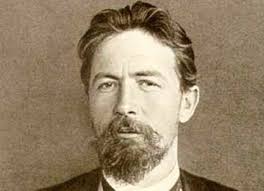
As is true with poetry, short stories are typically frowned upon by book publishers. To get a collection of short fiction accepted, you either have to be a well-known name or your stories have to be very, very (did I say “very”?) good.
This truth, as self-evident as Thomas Jefferson’s were supposed to be, struck me while rereading Peter Orner’s collection, Maggie Brown and Other Stories. In one called “Ineffectual Tribute to Len,” Orner goes on an Anton Chekhov riff.
As I read parts of this story, I found myself replacing the word “story” with “poem” because, whether good old Chekhov knew it or not, a lot of his philosophy holds in both genres. In this particular story, the narrator wants to write about his friend, Len, and has had a novel in mind all along. Then suddenly, it strikes him. Len is a story-in-waiting, not a novel, and Chekhov is the key. Read along and see what I mean:
“All hail Chekhov. If done right, he tells us, a story never ends. A story: lurks. A story, a good story, is just out of reach, always. Wake up in an unfamiliar darkness, in a room you don’t seem to recognize. Flip on the light. Nothing there. It’s your room again. But didn’t you feel a presence in the dark? The presence of someone you once knew? Someone you once loved? All these years I’ve been deluding myself, carrying around this folder as if one day it would grow covers and a binding. So simple, Len’s a story.”
Then the narrator decides to write his publisher, Little, Brown and Company, about his revelation:
“You say stories don’t sell, and God knows I have no reason to doubt you (I’ve seen the numbers on my story collections and they aren’t pretty; I know I’m basically a charity case), but don’t you see? It’s what Chekhov teaches. The last period of the last sentence of a story isn’t a full stop; it’s a horizon. It’s not about word count or pages. That’s a smothered way of thinking. We’re talking about the quest for infinity here. Horizons can’t ever be reached no matter how many words you lard on a novel. The attempt at closure is inherently dishonest. But a story! One that ends but doesn’t end, that’s infinity, immortality, right there…”
A short story master, Orner found inspiration in an earlier master. The master. And I love how he puts it here: “The last period of the last sentence of a story isn’t a full stop; it’s a horizon.”
I love even better how changing “story” to “poem” should make would-be poets realize that a poem’s ending cannot be a “full stop,” either. It must be a “horizon,” one that causes its reader to feel a certain resonance bringing both satisfaction and yearning.
Note, too, how Orner follows “full stop” with a semi-colon instead of a period. I particularly liked that touch, the semi-colon not quite being a full stop itself. The punctuation echoes the sentiment.
So, yes. Chekhov can teach practitioners of short writing—be they stories or poems—a thing or three. Think about that challenge the next time you sit down to write.
Hell with the Chekhovian gun on the wall that must be fired by the end. It’s the horizon that matters.
